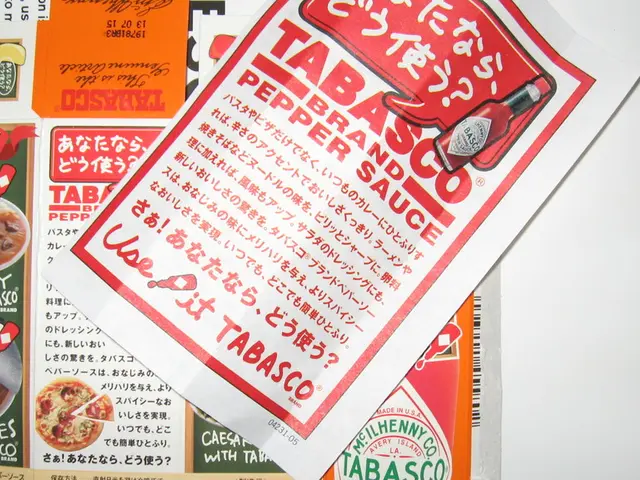Top-Notch Cat Foods for Managing Kidney Disease
In the unfortunate event your feline friend gets diagnosed with kidney disease, don't panic. Early detection, appropriate medical treatment, and a proper kidney diet designed for cats can significantly help manage the disease, slow its progression, and improve your cat's overall quality of life.
Dr. Carly Fox, senior veterinarian at Schwarzman Animal Medical Center in New York City, highlights the importance of feeding a kidney-friendly diet for cats with kidney disease (CKD). Such diets have phosphorus, protein, and salt levels lower than that of a regular maintenance adult cat food. They also contain increased omega-3 fatty acids from fish oil to help manage the disease better.
If your cat has CKD, consult your veterinarian for recommendations on suitable food. Most of the time, it will be a prescription diet since commercially available diets often have too much phosphorus and salt.
Your Cat Might Need a Kidney Disease Food
If your cat has CKD, you might notice they've lost weight, have less energy, urinate more frequently, and lack appetite. Feeding them specially formulated cat food for kidney disease can help protect kidney function, ensure your cat receives essential nutrients, relieve nausea, boost energy levels, reduce phosphate levels in the blood, and minimize protein loss through the kidneys.
According to one study, cats with CKD who were fed a special diet with restricted phosphorus and protein lived longer than those not on a special diet [1].
Top Vet-Approved Cat Foods for Kidney Disease
Although there's no single diet that suits all cats with CKD, finding a cat food your cat will consistently eat is essential. Here are some top-tier options worth discussing with your vet:
Best Overall: Royal Canin Vet Diet Renal Support Canned Cat Food
This kidney-support canned cat food from Royal Canin has a palatable formula that encourages even picky cats to eat. Its main ingredients include D-morsels made from slices of pork and chicken soaked in gravy, designed to stimulate your cat's appetite. It also contains essential fatty acids from fish oil, antioxidants, and protein levels tailored to support kidney function.
Best Dry Cat Food for Kidney Disease: Hill's Prescription Diet k/d Kidney Care Cat Food
This veterinarian-endorsed dry cat food contains targeted protein levels, is low in sodium, and uses a unique blend of ingredients designed to boost your cat's appetite. This formula supports essential kidney health while also potentially boosting your cat's vitality and energy.
Best Wet Cat Food for Kidney Disease: Purina Pro Plan Veterinary Diets NF Kidney Function
Purina Pro Plan's Early Care wet cat food with reduced phosphorus and sodium levels is ideal for cats recently diagnosed with CKD. This food offers antioxidants, a prebiotic fiber that aids GI health, and B-complex vitamins to support your cat's metabolism and energy levels.
Best Grain-Free Cat Food for Kidney Disease: Blue Buffalo Natural Veterinary Diet Kidney and Mobility Support Dry Cat Food
This grain-free dry kidney-support cat food from Blue Buffalo offers controlled protein (from deboned chicken) and mineral levels to aid kidney function. It also includes glucosamine and chondroitin, beneficial for joint health and mobility, especially in aging cats with CKD.
Things to Consider When Choosing a Kidney Disease Cat Food:
- Follow your vet's recommendations
- Ask for samples
- Transition your cat to a new food slowly
- Monitor your cat's weight
[1] https://onlinelibrary.wiley.com/doi/abs/10.1111/j.1748-5827.2000.tb03932.x
- Science has shown that cats with chronic kidney disease (CKD) who are fed a specialized diet with restricted phosphorus and protein can live longer.
- In addition to managing CKD, a kidney-friendly diet for cats can help protect kidney function, ensure essential nutrients are received, relieve nausea, boost energy levels, reduce phosphate levels in the blood, and minimize protein loss through the kidneys.
- If your cat has CKD, medical-conditions such as respiratory-conditions, digestive-health issues, eye-health problems, hearing issues, cardiovascular-health concerns, and neurological-disorders might also need to be addressed as part of their overall health-and-wellness plan.
- Fitness-and-exercise, mental-health, skin-care, nutrition, mens-health, and womens-health are all crucial aspects of family-health that should not be overlooked, even for our feline friends.
- Autoimmune-disorders can affect both cats and humans; seeking appropriate treatment can help manage these conditions and improve quality of life.
- Parenting a cat with CKD may require adjusting their routine and diet, but with proper care and attention from their owner, many cats can live happily and comfortably for years.
- When choosing a kidney disease cat food, it's essential to consult your veterinarian for recommendations on suitable food, as most of the time it will be a prescription diet since commercially available diets often have too much phosphorus and salt.
- It's crucial to follow your vet's recommendations while selecting a kidney disease cat food, as every cat is unique, and their dietary needs may vary.
- When transitioning your cat to a new kidney disease cat food, it's essential to do so gradually to avoid upsetting their digestive system.
- Small changes in your cat's weight can indicate how well their kidney disease is being managed; regularly monitoring your cat's weight is essential.
- Seeking advice from your veterinarian and discussing potential food options is the best way to ensure you're providing the best care for your cat with CKD and helping them maintain good health and a high quality of life.








